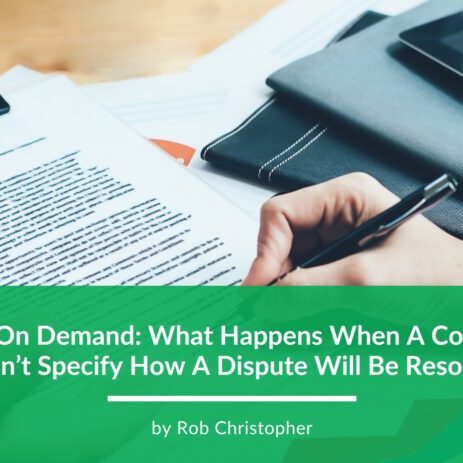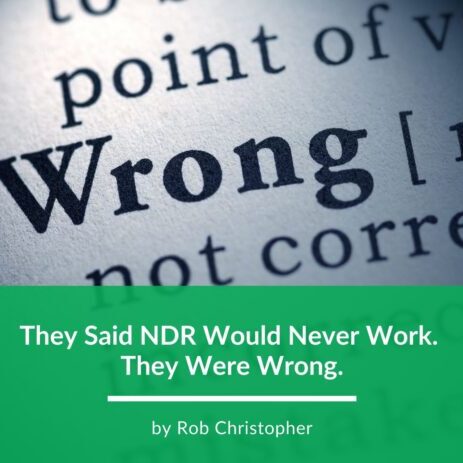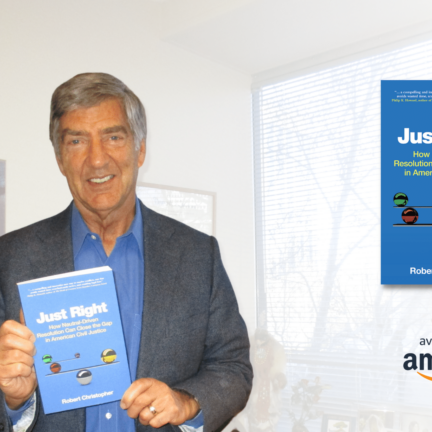Arbiter Spotlight – Monica Desai
 Monica Desai is a practicing attorney in Washington, D.C who recently decided to join Just Resolve as an Arbiter. Her practice focuses on advising clients from the technology and communications sectors on the regulations in their industry. She helps her clients navigate the often complex regulatory rules and policies of the Federal Communications Commission (FCC) and advocate before the agency. She joined private practice after spending eleven years at the FCC, serving as the Media Bureau chief and the chief of the Consumer and Governmental Affairs Bureau. She currently works for Squire Patton Boggs in Washington D.C.
Monica Desai is a practicing attorney in Washington, D.C who recently decided to join Just Resolve as an Arbiter. Her practice focuses on advising clients from the technology and communications sectors on the regulations in their industry. She helps her clients navigate the often complex regulatory rules and policies of the Federal Communications Commission (FCC) and advocate before the agency. She joined private practice after spending eleven years at the FCC, serving as the Media Bureau chief and the chief of the Consumer and Governmental Affairs Bureau. She currently works for Squire Patton Boggs in Washington D.C.
As part of our “Highlight an Arbiter” series, Ms. Desai agreed to answer a few questions regarding her background and how she fits as an Arbiter for Just Resolve along with a discussion as the role she sees Just Resolve playing in the alternative dispute resolution industry.
What unique experiences do you bring to Just Resolve as an Arbiter?
I have eleven years of experience working for the government in senior positions. Those positions required careful consideration of the input into policy issues provided by numerous and varied parties with divergent interests, and required the crafting of careful compromises to ensure the proposed policy and rulemaking was appropriate.
Throughout my career, both in the private sector as well as during my time in the government, I have had to navigate different viewpoints in order to ultimately propose a viable solution amenable to all parties involved. While this may be true for other lawyers, it is the variety of positions and real world experiences I have had that set me apart as an Arbiter for Just Resolve. While at the FCC, I held legal, policy, and management positions, which required the management of over three hundred people. Leading two bureaus at the FCC gave me experience in all aspects of budgeting, planning, managing employment disputes, and handling government contracts, all of which provided insight into how businesses think and what they expect from their employees.
Ultimately, I have learned that winning is not necessarily the objective in every dispute. What may be in the best interests of the parties is for everyone to win a little so as to ensure a viable working relationship going forward.
What will make you successful as an Arbiter?
It is very important to understand the individual perspectives of people involved in every dispute. Having worked as a liaison for the FCC with a number of outside organizations, I have the ability to quickly understand an individual’s ultimate goal in a dispute. There is validity to every point of view and it is necessary to understand where each side is coming from in order to find common ground. At the end of the day, as an arbiter, a decision is necessary but you have to take the time to dig in and find where the common ground might be so that you can make the most informed decision possible.
My time in the government and in the private sector has taught me the importance of coming to a solution that is both efficient and fair. I will never take a case that I do not think I can be impartial on and I will always work to ensure that the conclusion I reach is done so in the most efficient way possible.
What do you think differentiates Just Resolve from ‘traditional’ ADR services?
The traditional ADR services and the adversarial process more generally are inherently inefficient. Just Resolve offers the potential for a win-win solution not always available in the more traditional methods of dispute resolution and gives parties an opportunity to reach an outcome where everyone comes out ahead or at least in a better position than they would have had they chosen a more costly and perhaps more inefficient model for resolving their dispute.
You are already arbitrating and mediating disputes, why choose to join Just Resolve as an Arbiter?
Just Resolve’s method provides an efficient method that gives the parties the ability to save themselves time and money. Throughout my career I have worked towards reaching conclusions to situations that make the most sense both from an economic and from a timing perspective. Just Resolve gives parties another option for disputes that are smaller in nature and can be resolved more efficiently by a neutral party without the lengthy formal procedures of litigation or arbitration.
Why would companies or individuals use Just Resolve when there are other options?
The neutrals for Just Resolve are all experts in their fields and have wide-ranging experiences for most sorts of business disputes that may arise. This gives parties choice in the neutral they want based on their own needs as well as allowing them to choose from arbiters with different technical, legal, and life experiences. This adds up to an interesting mix of people with backgrounds that can offer solutions that best fit most disputes.
More to read
NDR on Demand: What Happens When a Contract Doesn’t Specify How a Dispute Will Be Resolved?
The best way to deter threats of litigation and minimize the costs, duration, and distractions of resolving any dispute is to put a dispute resolution clause specifying NDR — Neutral-Driven Resolution — in all your contracts BEFORE there is a problem. That means that if a dispute should arise between a business and a contractor,…
They Said NDR Would Never Work. They Were Wrong.
Many people are surprised by how effective NDR can be. Since publishing my book and speaking at events about NDR (Neutral-Driven Resolution), I’ve often been asked a simple question: Does it work? And if it really does lower the costs and the time it takes to settle common disputes, why doesn’t everybody know about…
“Morgan Hill author releases new book”
The Morgan Hill Times featured Rob’s new book in an article ahead of his “Meet the Author” night at Booksmart. “Legal disputes and conflicts cost businesses billions of dollars a year in lawyers’ fees, lost productivity, time and aggravation. A new book by Morgan Hill author Robert Christopher proposes an innovative, faster and simpler way…
Not All Disputes are Equal
Not all business and legal disputes are alike, and not all of them can be resolved in the same way. In writing my book Just Right: How Neutral-Driven Resolution Can Close the Gap in American Civil Justice, it was important to distinguish the types of common disputes for which NDR is most suitable. As readers…



